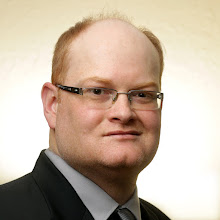Long story short, the campus Internet-only radio station at UCLA was barred from calling the Bruins' NCAA Tournament games after Westwood One
"We're talking about a student activity -- a case where it's the students who are competing on the court, and you're taking an element of student participation out of the college athletic experience? How absurd. I find it utterly atrocious that money has taken the front seat over the student experience for the tournament."Shame on them.
Contrast this with the Final 8. There was The Score calling the action right down press row from webcaster Streaming Sports Network Canada with Carleton student Mark Masters and (expectant father) Mark Wacyk of cishoops.ca calling most of the games, while Carleton's CKCU 93.1 had the radio call. It meant people had options and there were different voices involved. What's the harm in that?
Goodness knows there's about a millionth of the dollars tied up in collegiate sports in the U.S. in Canada. However, covering the Final 8 without the student journalists there wouldn't have been near as much fun. It meant having people around who could share insights and information on the teams they'd covered all season with the pros who were just there for the championship.
The lack of formality was great; instead of seeing that thousand-yard stare from coaches and players when they were herded in front of a media scrum, the journalists often got one-on-ones, which presumably made for better quotes. So Michael Grange from globesports.com and Austin Kent from the Brock student paper could each have a one-on-one with one of the Badgers players. (A lot of credit should go to Carleton SID David Kent, who made sure things were formal, but not to the point it felt rigid.)
It's understandable that there are lot of questions about how to build a business model in the Internet age. Trying to restrict the access students have to a supposed student activity just seems short-sighted. The information is free; it's all in how you present your take. What's it say about Westwood One's work that they looked at an Internet broadcast as competition?
Related:
It's a hard lesson for UCLA student broadcaster (Tom Hoffarth, L.A. Daily News)

0 comments:
Post a Comment